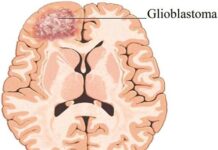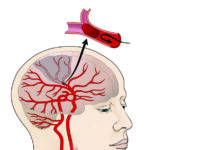How GPs can address mental health
issues successfully
– An Interview with Dr Sathya Prakash, MD (AIIMS, Gold Medalist), Dip. CBT (UWS, Glasgow), Consultant Psychiatrist, Psychotherapist & De-addiction Specialist, New Delhi
In this wide ranging interview, Dr Sathya Prakash speaks to our Dr Soham D Bhaduri on the important role GPs can play in addressing mental health problems. Dr Prakash elaborates on how mental health issues can be detected at the initial stages itself and on various treatment options from the preliminary to serious cases. Many helpful, useful tips are also outlined.
This interview was conducted by Dr. Soham D Bhaduri who is a medical doctor from Rajiv Gandhi Medical College, Thane, Maharashtra. He takes keen interest in writing on Mental Health and Medical Education, and has a written for a number of renowned news portals and medical pages.
Excerpts from the interview.
Dr Soham D Bhaduri (SDB): How important is it for GPs to be able to address basic psychiatric problems in their practice? Do you think that a lack of integration of mental health services with general health services hurts our healthcare?
Dr Sathya Prakash (SP): In a country the size of ours, with a huge population, lack of access to health services is a well known problem. All the more so for the treatment and prevention of mental health problems. It is estimated that there is just one psychiatrist per 2-3 lakh people in India. Thus, the need to make the mental healthcare system more efficient is obvious and imperative. A strategy that has been advocated by many and endorsed by the World Health Organization (WHO) as well is that of integration of health services. Integrating mental health services with general health services. This will make the service delivery more efficient and can be of great value in a scenario where the resources are scarce. GPs would occupy a very important position in this scheme of integrating health services and their ability to address basic psychiatric problems is therefore very important.
SDB: How should a GP approach a patient of acute mental illness/psychiatric emergency that arrives at their clinic? Could you cite a few examples?
SP: Patients attempting self harm being brought to an emergency unit are a common scenario. Besides the medical management, one must look into what led to the self harm attempt. Was it merely a situational provocation or was there a suggestion of an ongoing mental illness preceding this attempt. Common sense management of the situation at hand, including interaction with, and advising the family members regarding safety precautions should be done. A period of observation until things calm down a little can be useful. In cases of clear signs and symptoms of mental illness, after initial stabilization, referral to a psychiatrist should be considered for long term management.
Patients presenting with an acute manic or psychotic excitement is also a common scenario in the emergency rooms. Talking to the patient in a calm voice, being non-confrontational but firm can help to bring the situation under control and also reduce the doses of medicines that may be needed in acute management. Basic understanding of a few commonly used medications in such scenarios can equip one with the ability to handle these situations. Intramuscular haloperidol has been extensively used for this indication. Doses ranging from 5 to 10 mg are used to contain acute manic or psychotic excitement. As haloperidol can induce extrapyramidal side effects, promethazine is often used in combination, in doses ranging from 12.5 mg to 50 mg to neutralize these side effects. These medicines must be used cautiously in patients of older ages, and in those with neurological problems. Promethazine must be avoided if possible in those with delirium. Among the oral medicines, olanzapine is particularly useful in emergency scenarios, in doses ranging from 5 to 20 mg. Besides antipsychotic properties, it is quite sedating and calming. However, longer term use is associated with metabolic side effects which must be borne in mind. After initial stabilization, for a longer term management, referral to a psychiatrist may be needed.
Patients with anxiety or depressive disorders may report with acute anxiety or panic attacks. They may report chest pain, breathlessness, a feeling of impending doom or that they are having a heart attack. After initial medical evaluation, when it becomes evident that cardiac functions are normal, giving a stat dose of benzodiazepines like lorazepam 2mg, clonazepam 0.25-0.5 mg or alprazolam 0.25-0.5 mg can be extremely useful. However, benzodiazepines should not be continued as the main treatment because they can be habit forming. If the panic attacks are frequent, recurrent and distressing, and are seemingly unrelated to any other medical condition, treatment with an SSRI such escitalopram (5-20 mg) must be considered.
SDB: How can a GP identify mental illness at an early stage, and what role can they play in their long term management and prevention?
SP: Unexplained decline in levels of functioning, sustained mood changes of any kind, line of thinking that would seem illogical, any form of odd behavior should alert one to the possibility of a mental illness. Further exploration of the suspected symptoms should be undertaken and appropriate line of action followed.
Very often, patients with severe mental illnesses stabilized on a particular medication or combination of medicines do well for years and need only ongoing clinical supervision. Periodic follow ups with a GP who can monitor for drug related adverse effects, general health checkups and monitoring early warning signs of recurrence of psychiatric symptoms can be extremely useful. Early warning signs can be strikingly similar in each episode, i.e. each time the illness recurs, the first set of symptoms that re-emerge can be quite similar across episodes. So it can be quite useful to discuss what these symptoms are with the patient and family during the period the patient is well. For instance, for a lot of people with bipolar disorder, decreasing need for sleep (sleeps less but does not feel tired) and increasing substance use is an early marker of relapse into a manic episode. In case of psychotic illnesses like schizophrenia, before clear cut delusions and hallucinations emerge, there is often a phase where the patient feels that something is strangely wrong but he/ she is unable to put a finger on it. Similarly, in an impending depressive episode, changes in energy levels, sleep and appetite may be seen initially. Very often, unexplained physical complaints may be a sign of depression.
Compliance to medications can often be problematic in patients suffering from psychiatric illnesses. This very often results in poor symptom control and quality of life. Although a number of factors are associated with poor compliance, if one was to highlight two of the most important ones, they would be: one, a sense of being dependent on the medications and two, unaddressed side effects of the medicines (either real or perceived). Antipsychotic, antidepressant and mood stabilizing drugs are not habit forming or addictive. Contrary to popular lay belief, they are not intended to put people to sleep. Like medicines for any health condition, the idea is to treat the disease/ disorder in question. The fact that psychotropic medicines need to be taken for a long time is often confused (wrongly) to mean that they are addictive. Unlike truly addictive substances, the doses do not need to be increased constantly to obtain the same effect. Analogy to anti-hypertensive and anti-diabetic medicines can be useful to explain to the patient and family. Unaddressed side effects such as sexual dysfunction often lead patients to discontinue medications because they feel ashamed to discuss this with the doctor and the doctor does not ask this on his/ her own. Many a time, a mere re-assurance that this effect is temporary and will not cause any permanent damage is enough, even if nothing really is done to get rid of the side effect.
Patients with severe mental illnesses have a much higher risk of a number of physical illnesses, particularly metabolic disorders, which are often ignored. For instance, patients with schizophrenia have a up to fourfold higher risk of acquiring type 2 diabetes mellitus and upto twofold higher risk of acquiring cardiovascular disease. The risk of respiratory disorders such as COPD is also about four fold higher for patients with schizophrenia. Such physical illnesses reduce the life expectancy of these patients by as much as two decades. GPs can play a huge role in mitigating this burden during the long term management.
SDB: Numerous somatic illnesses have been found to possess a psychiatric dimension. How should a GP go about identifying and addressing such issues? Do you think a GP can play a significant role in this area, being a single window for both somatic and psychiatric problems?
SP: Yes, a GP can certainly play a huge role in identifying psychiatric problems like depression in the medically ill. Just as one asks for history of smoking in respiratory diseases, it may be worthwhile to consider looking for depression in the medically ill. Most chronic medical conditions, particularly those associated with pain, reduction in quality of life and producing physical limitations can be associated with depression. It is important to understand that significant improvement in both functioning and quality of life can be achieved by treating depression. In conditions like stroke or Parkinson’s disease, it is easy to mistakenly attribute all physical limitations to the physical ailment, whereas a large proportion of the functional impairment is now known to be related to psychological factors. Chronic painful conditions are known to be a risk factor for suicidal ideation. Contrary to popular belief, asking if the patient is feeling suicidal does not increase chances of suicide, but possibly reduces it. Patients are often relieved to know that the doctor understands how he/ she feels.
SDB: What practical advices and tips would you give to our GP readers regarding handling of mentally ill patients? Could you suggest a few ways for GPs to hone their skillset as regards dealing with common psychiatric illnesses, and which areas need the most attention?
SP: Whether a patient is designated as mentally ill or not, it is always useful and important to convey a sense that the doctor understands not just the patient’s disease but also how he/ she feels. It is also important for the patient to feel that the doctor’s expressions are genuine and not merely a socially appropriate gesture. These two factors, referred to as empathy and genuineness are perhaps very important skills for any practitioner treating a patient. This is especially true in case of mental illnesses. It is also important to have a non-judgmental and non-confrontational attitude while working with the mentally ill. This awareness is particularly important because certain patients with substance use disorders, psychotic disorders or personality disorders can display behaviors that may be perceived negatively by the doctor. Confrontation will only worsen the situation. Also, certain patients may be reluctant to seek treatment because of stigma associated with mental illness. So, the doctor might need to go the extra mile to make the patient feel comfortable.
A number of textbooks, manuals and resource materials of all sizes and detailing are available. However, a relatively concise, lucid yet authentic resource material would be ‘The Maudsley Prescribing Guidelines in Psychiatry’. It can be used by GPs and psychiatrists alike, both as a reference material as well as like a pocket guide to drug dosing, treatment strategies and precautions. ‘Substance use disorder, A manual for physicians’, is a freely downloadable, authentic resource to understand and manage patients with substance use disorders. The latter has been specifically developed for our country by Indian authors. Anxiety disorders, depressive disorders and substance use disorders are very common and from a general population level perspective, focusing on these three groups of disorders is likely to reap the maximum dividends.
Excerpt from May 2017


























